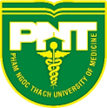Introduction The concept of smart healthcare, an integration of advanced technologies and digital solutions in medical care, is rapidly gaining momentum. However, the success of this technological revolution hinges significantly on one key aspect: health literacy. In this blog, we will explore how health literacy is pivotal in maximizing the potential of smart healthcare solutions.
Understanding Health Literacy in the Context of Smart Healthcare Health literacy, traditionally focused on the ability to understand and utilize health information, has taken on a new dimension in the era of smart healthcare. It now encompasses the skills needed to navigate digital health platforms, use wearable health devices effectively, and understand data generated by smart healthcare technologies.
The Emergence of Smart Healthcare Smart healthcare represents a blend of telemedicine, AI-powered diagnostics, wearable devices, and electronic health records, aiming to make healthcare more accessible, efficient, and personalized. This innovation promises to transform patient care, allowing for real-time health monitoring and data-driven decision-making.
The Synergy of Health Literacy and Smart Healthcare For smart healthcare to be effective, users must possess the health literacy to navigate these new technologies. This includes understanding how to operate health monitoring devices, interpret the data these devices provide, and make informed decisions based on this information.
Bridging the Health Literacy Gap in Smart Healthcare One of the challenges in the widespread adoption of smart healthcare is the varying levels of health literacy across different populations. Bridging this gap involves educating and training individuals to effectively use and benefit from smart healthcare technologies.
Ethical and Privacy Considerations in Smart Healthcare With the rise of smart healthcare, issues such as data privacy and ethical use of personal health information have come to the forefront. Ensuring the security of health data and maintaining the confidentiality of patient information is crucial in the age of digital health.
Smart Healthcare: A Step Towards Personalized Medicine Smart healthcare offers the potential for highly personalized medicine. By leveraging health data from various sources, healthcare providers can tailor treatments and health interventions to individual needs, leading to better health outcomes.
Conclusion The integration of health literacy and smart healthcare is a vital step towards a more efficient and patient-centered healthcare system. By enhancing health literacy, we can ensure that the benefits of smart healthcare are fully realized, leading to improved health outcomes and a more empowered patient population. As we continue to navigate the intersection of these two fields, the focus should remain on accessibility, education, and the ethical use of technology in healthcare.
